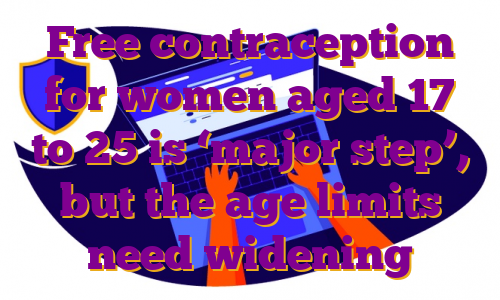Any GP who has yet to sign up for the new free contraception service for women aged 17 to 25 can still provide it from today and claim reimbursement from the HSE in the coming weeks when their contract comes through, it emerged yesterday.Ps would have liked more time before the rollout of the scheme, but it is a landmark development that will be welcomed by women in that age group for the financial freedom it allows them.
Webdoctors who provide an online-only consultation to a patient are not yet eligible to take part in the scheme.
Work is still under way to bring them in to the net, and such a move will be welcomed by women who can find it difficult to get a face-to-face appointment with a busy GP.
Not only are women entitled to free oral contraception and fittings of coils and implants, but all consultations with the GP are also without charge.
About 100 GPs were still at the stage of making enquiries about the contract yesterday morning.
Not all GPs will sign up, in return for an HSE fee, but most are expected to do so in the coming weeks, depending on workload and the age group of their patients.
A woman must have a face-to-face consultation with a GP, who will check her suitability and any health risks before prescribing or fitting contraceptives.
Health Minister Stephen Donnelly, who launched the scheme yesterday, said it will be expensive at €26m in a full year but means “we are removing any financial barriers to an age cohort for whom such barriers are most likely to be an issue”.
It will make a substantial saving for young women. Costs for the pill and similar repeat prescription contraceptives can be estimated at €65 to €100 every six months. It will lead to fewer unplanned pregnancies and could affect abortion figures.
The initial costs of long-acting reversible contraception, including consultation, purchase of the device and fitting can typically range from €250 to €320. If the costs of removal are also included, the costs rise to €340 to €470.
All of these now have no fee, and there is no charge for any after-care.
The higher outlay for long-lasting contraception was a disincentive to women who could not afford it, and it left them to choose less reliable forms instead.
Long-acting reversible contraceptives can be at least 10 times more effective than other reversible contraception.
The morning-after pill or emergency contraception is also free.
Mr Donnelly said he would like to widen eligibility to 16 and to the over-25s, but no timescale for this was yet in place.
The Irish Family Planning Association (IFPA) and the Dublin Well Woman Centre will both be involved in the scheme.
Alison Begas, of the Dublin Well Woman Centre, said it welcomed the scheme and predicted increased demand for its service.
Niall Behan, of the IFPA, said “a robust public health awareness campaign is absolutely essential to the scheme’s success”.
“People who are eligible for the scheme will need accessible information about all available methods, their pros and cons and where and how they can access free contraception,” he added.
“Currently, under-17s and over-25s without a medical card still have to pay for contraception, and high up-front costs for the most effective methods – coils and implants – makes them inaccessible to many.
“We know that some women and girls are forced to rely on less effective methods, or no method at all.
“Today is a major step forward for reproductive health and rights, but this ground-breaking scheme must be rapidly expanded to include all ages.”

